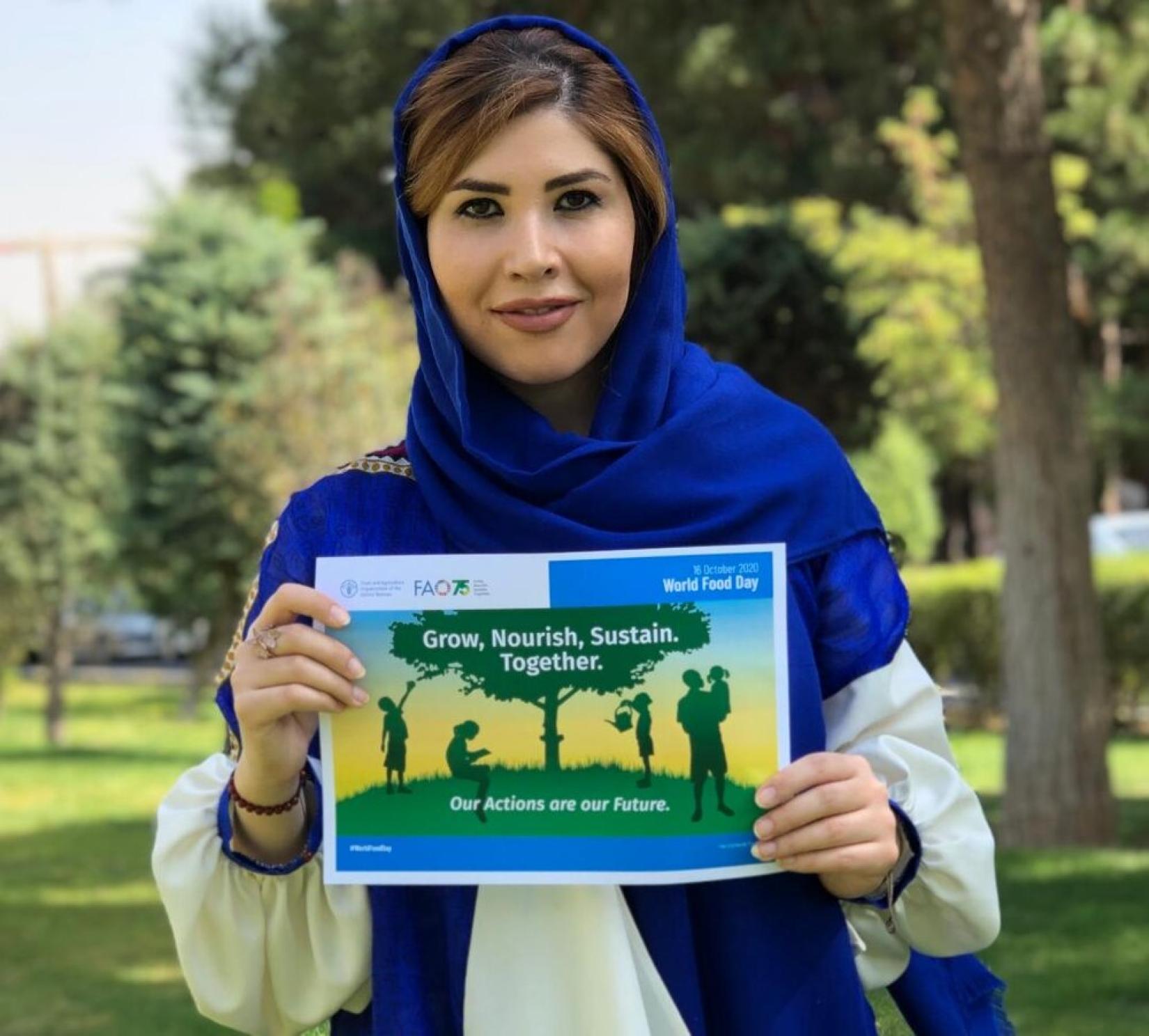Celebrating a different World Food Day on FAO’s 75th Anniversary
15 October 2020
- Marjan Ghanbari, Assistant FAO Representative (Programme) - Tehran Times

Each year, the international community, national partners and local associates across different corners of the globe commemorate World Food Day, making it one of the most celebrated international days. However, this year, World Food Day is no ordinary day.
It comes as the world continues to fight the COVID-19 pandemic, which has exposed the fragility of our agri-food systems and threatens to push millions more into hunger. The World Food Day also comes as the Food and Agriculture Organization of the United Nations (FAO) turns 75.
Since the founding of FAO, the world has made significant progress in the fight against poverty, hunger, and malnutrition. Agricultural productivity and agri-food systems have come a long way; however, the cumulative challenges we have faced over the last couple of years underscore how we must transform our current agri-food system that is out of balance.
Hunger and at the opposite end obesity, environmental degradation, food loss, and waste and a lack of security for food chain workers are only some of the issues that underline this imbalance.
Although we now produce more than enough food to feed everyone, yet too many people suffer from malnutrition. Even before the pandemic, over two billion people did not have regular access to enough safe and nutritious food. Nearly 700 million people go to bed hungry.
In such circumstances, the COVID-19 health crisis has added to these challenges. The economic disruption linked to the pandemic may push another 130 million people into hunger by the end of the year. The pandemic has reminded everyone that food security and nutritious diets matter to all.
Now is the time to address the persistent inequalities and inefficiencies that have continued to plague our food systems, economies, and social support structures. It is time to build back better.
One key lesson, which FAO has learned over the last 75 years, is that simply producing more food is not enough. Indeed, making agri-food systems sustainable, resilient, and inclusive, and healthy diets accessible and affordable for everyone is paramount to building the situation back better.
* We need smart, systemic action to get the food to those who need it and improve it for those who have it, without affecting our earth.
* We need to bring together data, big data, technology, innovation and good governance to achieve better production, better nutrition, a better environment, and better livelihoods.
* We need to enhance the use of digital tools and artificial intelligence, to predict threats to harvest and cut climate risk.
* We must transform the way the food is produced, processed, traded, consumed, and wasted, to ensure that we can meet our future needs without degrading and depleting the biodiversity and other natural resources on which we all rely.
* We need to invest in social protection policies and programs that ensure safe conditions and decent incomes for smallholder farmers and food chain workers and adopt measures that avoid economic disruptions.
FAO, being the lead UN agency in promoting food and nutrition security and advocating sustainable development of agri-food systems, has adopted several initiatives, streamlining innovative solutions in addressing pending challenges.
Coordinating global activities to track, monitor, control and report on desert locust infestations across African, Middle Eastern and Southern Asian regions; implementing FAO’s Hand-in-Hand Geospatial Platform to provide vital information to monitor agricultural systems at risk due to human pressure on land and water and analyze weather-related trends; and using satellite technology to monitor agricultural areas with a high water stress/drought at national, regional and international levels are among the most recent initiative implemented by FAO at global echelon.
With the theme “Grow, nourish, sustain together - Our actions are our future”, World Food Day 2020 calls for global solidarity, which is vital for our recovery from this crisis. We need strong partnerships more than ever.
This World Food Day also provides an opportunity to thank our Food Heroes – farmers and workers throughout the food supply chain – who, no matter the circumstances, continue to provide food to their communities and beyond. In the early days of the pandemic, when shelves went empty; when fruit-pickers went missing; when markets fell silent, we realized how we were taking these services and the people, that provide them, for granted.
To access the orginal source click here



